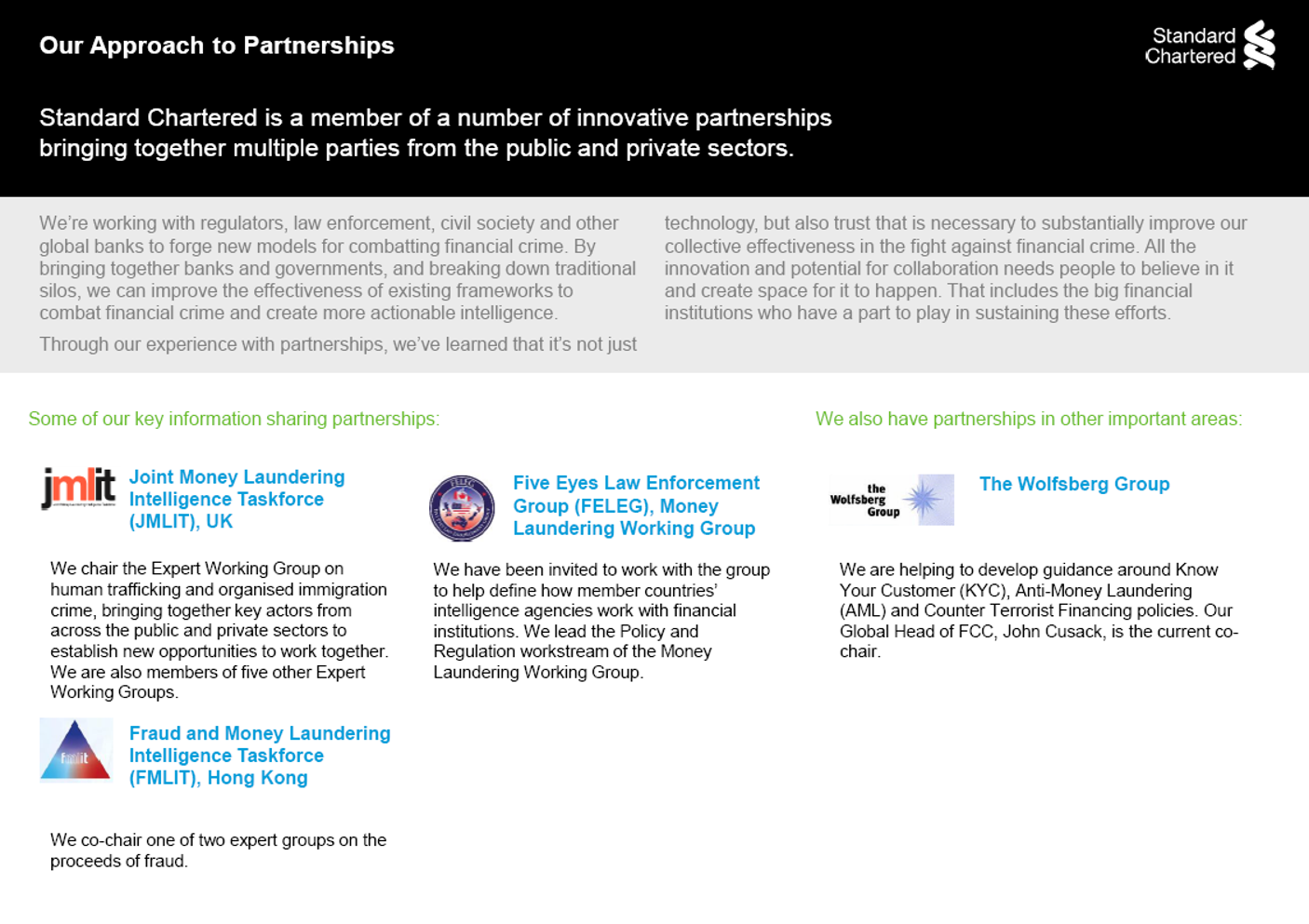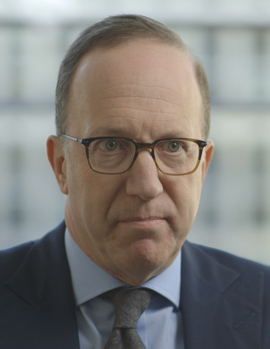Since then, the Group’s overarching goal has been to provide practical, effective ways to protect the integrity of the financial system. As regulatory expectations have increased, the need for expert practitioners to provide sensible and effective ways to operationalise these regulations has become essential. This is where the Group plays a key role in bringing together Global Heads of Compliance and Financial Crime Compliance to exchange opinions and share best practices. The conclusions of these collaborative efforts are usually published for information and use by the industry; as well as to inform policy makers, standard setters, supervisors and regulators.
The Group has issued standards and FAQs on many of the key aspects of financial crime compliance, including;
As the environment in which we operate is dynamic, it is important to refresh this body of work continuously.
One of the core principles of the Group is the spirit of “Collective Action.” Over the years, members have built up a strong sense of partnership in order to achieve their common goals of effective financial crime risk management and safeguarding the integrity of the financial system. The Group also works with many non-members and remains ready to continue new collaborative efforts within the industry and beyond.
The membership of the Group had not changed since its inception, so we were particularly proud when Standard Chartered was admitted as a new member in June 2015. We see our membership as an honour and a privilege. Our involvement with the Group informs how we address financial crime risks and combat financial crime, while enabling us to play a positive role in shaping better practice in the industry.
Personally, I am delighted to have been appointed the European Co-Chair for 2017, with Sterling Daines, Managing Director at Goldman Sachs’ Anti-Money Laundering Group as the US Co-Chair. Our role is to ensure that the collaborative spirit built up over so many years through many meetings and successful initiatives is maintained – that is the very essence of the Group.
You can read more about the Group, its publications and guidance and its history here.
John Cusack | Global Head, Financial Crime Compliance









